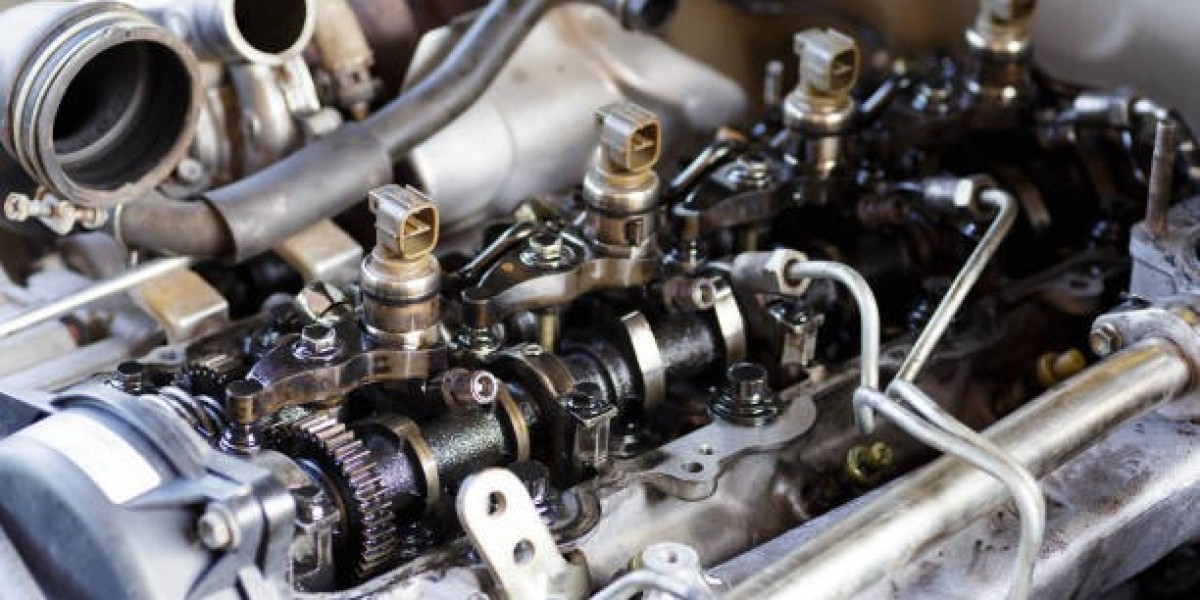Modern diesel engines rely on precision, performance, and reliability. At the heart of this technology lies the common rail fuel injection system, which ensures optimal fuel delivery for power and efficiency. One critical component of this system is the high pressure sensor for common rail—a device that silently monitors and maintains pressure for proper engine operation.
At PAL DIESEL SERVICE, we specialize in diagnosing, servicing, and replacing high pressure sensors and diesel fuel injectors, especially for Cummins diesel fuel systems. Whether you're running a commercial truck or a construction machine, understanding how these sensors work can help you keep your diesel engine running longer and stronger.
What is a High Pressure Sensor in a Common Rail System?
A high pressure sensor (also called a rail pressure sensor) is a vital electronic component in the common rail diesel fuel injection system. Its main job is to measure the pressure inside the fuel rail, where pressurized fuel is stored before being injected into the combustion chamber.
This real-time data is sent to the Engine Control Unit (ECU), which uses it to:
Control injection timing
Regulate injection pressure
Improve fuel efficiency
Reduce harmful emissions
Prevent engine damage
If the sensor provides inaccurate data, the ECU cannot regulate pressure correctly, leading to poor engine performance, excessive fuel consumption, or even failure to start.
Why is the High Pressure Sensor So Important?
The common rail system operates at pressures as high as 1,800 to 2,000 bar (around 26,000–29,000 psi). At such levels, precision is everything. A small variation in pressure can lead to incomplete combustion or engine knocking.
In engines using Cummins diesel fuel systems, for example, the high pressure sensor plays a critical role in maintaining consistent performance under different load and speed conditions. It ensures that the diesel fuel injector receives fuel at the correct pressure for proper atomization and combustion.
Symptoms of a Failing High Pressure Sensor
A failing or faulty pressure sensor can trigger multiple issues. Some of the most common signs include:
Hard starting or no start condition
Check engine light or fault codes related to fuel pressure
Poor acceleration or engine hesitation
Rough idling or misfiring
Increased fuel consumption
If you're experiencing any of these issues, it’s important to have your fuel system diagnosed immediately. At PAL DIESEL SERVICE, we offer comprehensive diagnostic and replacement services for high pressure sensors and diesel fuel injectors across a variety of diesel engines.
High Pressure Sensor vs. Diesel Fuel Injector: What’s the Connection?
While they serve different purposes, the high pressure sensor and diesel fuel injector are tightly connected within the common rail system.
The sensor monitors and communicates fuel pressure data.
The injector depends on this data for accurate fuel delivery.
If the pressure sensor fails, the injectors may receive incorrect fuel amounts, leading to inefficient combustion, power loss, or engine damage. That’s why it's essential to ensure both components are working perfectly in sync.
High Pressure Sensor in Cummins Diesel Fuel Systems
Cummins engines are known for their durability and performance. They often use electronically controlled common rail systems with high-tech components. In these systems, the high pressure sensor is typically located on the fuel rail and works directly with the Cummins ECU.
Some Cummins engine series like the ISX, ISB, and QSB heavily rely on accurate pressure readings for turbo boost timing and emissions control.
At PAL DIESEL SERVICE, we use OEM-quality sensors and test all repairs with industry-grade diagnostic tools to ensure your Cummins engine continues to perform at peak efficiency.
Tips to Extend the Life of Your High Pressure Sensor
Here are some maintenance tips to protect your fuel sensor and common rail system:
Use clean, high-quality diesel fuel – contaminated fuel can clog sensors and injectors.
Replace fuel filters regularly – to prevent debris buildup in the rail.
Inspect electrical connections – as loose or corroded wiring can cause false readings.
Schedule periodic diagnostics – early detection can prevent costly breakdowns.
PAL DIESEL SERVICE offers diesel fuel injection services including system cleaning, sensor diagnostics, and replacement for all major diesel engine models.
Frequently Asked Questions (FAQs)
Q1: How often should a high pressure sensor be replaced?
There’s no fixed interval, but it’s generally replaced only when faulty. Regular diagnostics can help catch issues early. Most sensors last over 100,000 km in well-maintained vehicles.
Q2: Can I drive with a bad high pressure sensor?
It's not recommended. A faulty sensor can cause rough performance or even prevent the engine from starting. Prolonged driving can lead to damage in the diesel fuel injector or other fuel system parts.
Q3: How much does it cost to replace a high pressure sensor?
Costs vary depending on the vehicle model and sensor brand. At PAL DIESEL SERVICE, we provide affordable options using OEM-quality parts and expert installation.
Q4: Do you offer service for Cummins diesel fuel systems?
Yes! We specialize in Cummins diesel engines and provide full diagnostic and repair services for fuel injectors, high pressure sensors, and turbocharger components.
Why Choose PAL DIESEL SERVICE?
At PAL DIESEL SERVICE, we are committed to quality, precision, and performance. Our technicians are trained to handle complex fuel systems with expertise. We use advanced equipment to test, clean, and replace diesel components, including injectors and pressure sensors.
We serve trucks, generators, earthmovers, and more—ensuring your diesel engine runs like new.
Final Thoughts
The high pressure sensor for common rail systems may be small, but it has a big impact. It ensures smooth, efficient, and safe engine operation—especially in powerful engines like Cummins diesel fuel systems.
If you're facing fuel system issues or need expert diagnostics, contact PAL DIESEL SERVICE today for trusted diesel fuel injection services. Our team is here to help you keep your engine running at its best.































